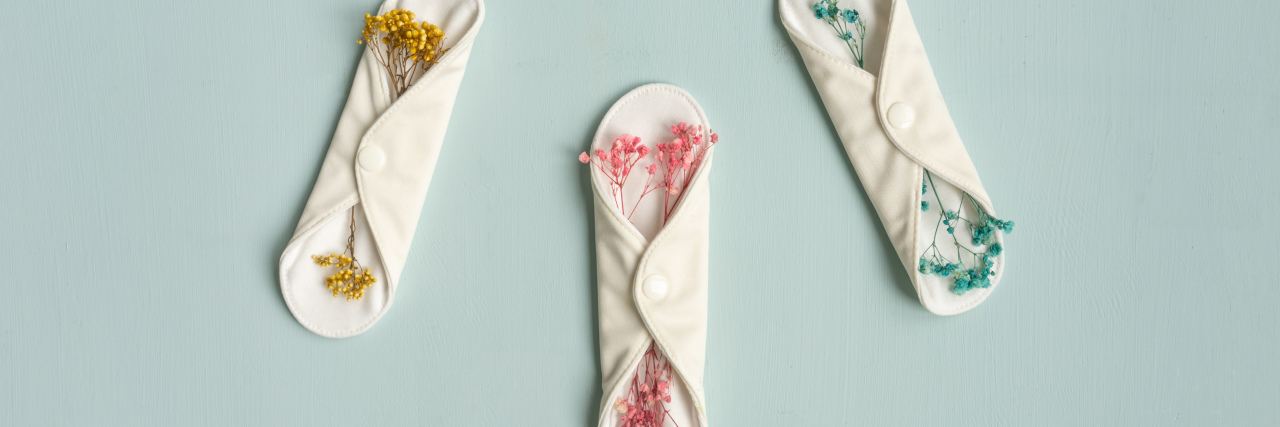My Hysterectomy Changed My Life
Editor's Note
Any medical information included is based on a personal experience. For questions or concerns regarding health, please consult a doctor or medical professional.
Living with Endometriosis is something I wouldn’t wish on my worst enemy.
The impact on daily life is incalculable, ranging from debilitating physical and mental health symptoms to very real economic implications that aren’t often discussed. And, no matter how understanding others are about your condition, the effects do alter your relationships negatively. I managed these challenges for 24 years until I finally had a hysterectomy. I cannot overstate how life altering getting that procedure was. It quite literally saved my life in every way possible.
Up until my hysterectomy I attempted to manage my symptoms as best as I and doctors who didn’t know what was really wrong with me knew how. I started taking birth control when I was 12 in hopes of regulating my cycle and managing the debilitating PMS, cramping, bloating, diarrhea, heavy bleeding and clotting I had. Every month for about a week to 10 days I suffered with my period. Some months it was so bad that I’d have to skip school, dance, work or any activity because I couldn’t stand up without feeling like I was going to pass out, both from severe anemia from the amount of blood I would lose during each cycle and from the cramps which felt like someone was ramming a spiral dagger in and out of my abdomen and twisting it around. No amount of pain medication helped and heating pads barely made a dent. I tried everything and anything I could to manage the pain that anyone had offered up, including varying herbal supplements, alcoholic remedies and even medicated vaginal suppositories that as a survivor of sexual abuse were excruciating to insert.
When I was 27 I had an exploratory laparoscopy during which a doctor finally diagnosed my endometriosis. They cauterized the existing lesions with a laser and once I had healed from the surgery they put me on a different birth control that enabled me to only have a menstrual cycle once every three months. I still struggled with constant pain but at least I didn’t have to have a period every month, which helped for a short while until those quarterly cycles got worse and worse. I knew that the next step for me in terms of treating my endometriosis was to get a hysterectomy, but at my age I couldn’t get a doctor to agree to sign off on it. So I continued to suffer for another 9 years, becoming more and more distraught at the utter lack of understanding doctors had for how debilitating my condition was.
Aside from the physical pain, being dismissed and feeling like I had to fight my doctors at every turn to get the care I needed was exhausting. It felt like I was being gaslit at every turn, like they didn’t believe it was as bad as it was. And I had a distinct sense that my body didn’t belong to me. It was as if my body belonged to an imaginary future child that I likely couldn’t have and frankly didn’t want to have, but that my doctors decided I “should” have. I resented the fact that my care was contingent upon a societal role that I was supposed to fulfill as a 20-something-year-old fertile woman who was married. My identity as a human was completely erased by my identity as “potential future mom.”
From an economic perspective, the ramifications were obvious. If I couldn’t get out of bed, I couldn’t go to work. If I couldn’t go to work, I couldn’t make money. That’s not exactly sustainable if you are working an hourly job. Most employers are not understanding of an employee calling in sick for two to three days a month, every month. And frankly I can’t say I blame them. While I was never fired, I was disciplined for absenteeism by one employer. It was only when I finally worked a salaried position with a supervisor who was very understanding that I didn’t have to worry about calling in sick. As long as I got my work done and made up the hours on another day, I was able to take the time I needed off. Not everyone is that lucky though.
And finally, even the strongest relationships can be negatively impacted when one has a chronic illness. Friendships can be strained when you have to cancel plans all the time. Intimate partnerships are obviously affected when physical intimacy is impossible a lot of the time. Not to mention the sense of helplessness a partner feels while watching the person they love suffer and not be able to do anything to help them. My husband would get so upset when we’d repeatedly get dismissed by doctors. He would assert that we had decided as a couple not to have children and even then the doctor would insist we’d change our minds. It was completely incomprehensible.
At 36, my doctor finally decided I was old enough to get my hysterectomy. The years of frustration, pain, dismissal and compromised quality of life would finally come to an end. My surgery was hard. I had some complications that prolonged the healing process. But, I’d do it all over again. Not having the agony of my monthly cycle has completely changed my life. I don’t have to worry about missing work or social activities due to my pain. I no longer structure my life’s activities around my cycle. I don’t feel exhausted all the time. And most of all, I finally feel like I own my body…not a doctor, not society and not endometriosis.
Image courtesy of Getty Images

